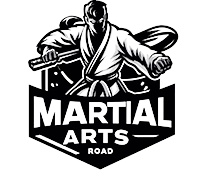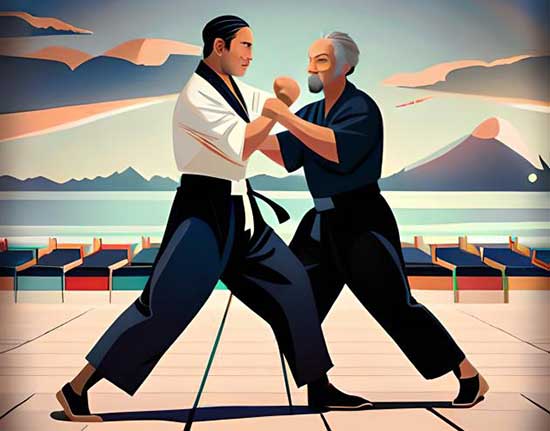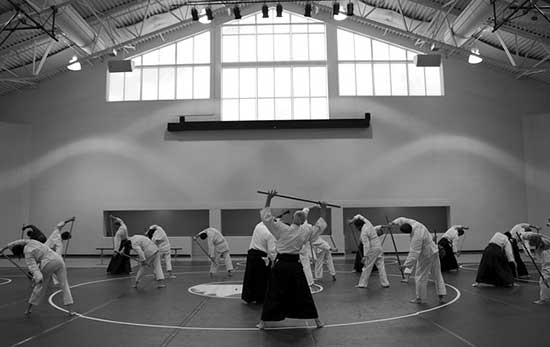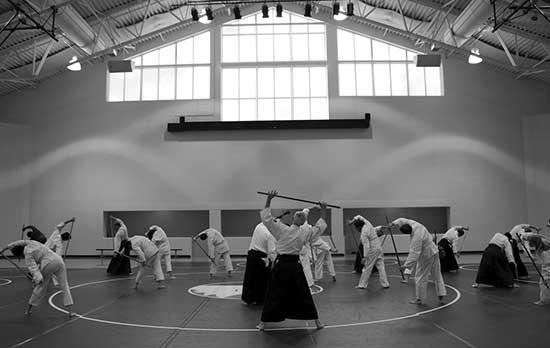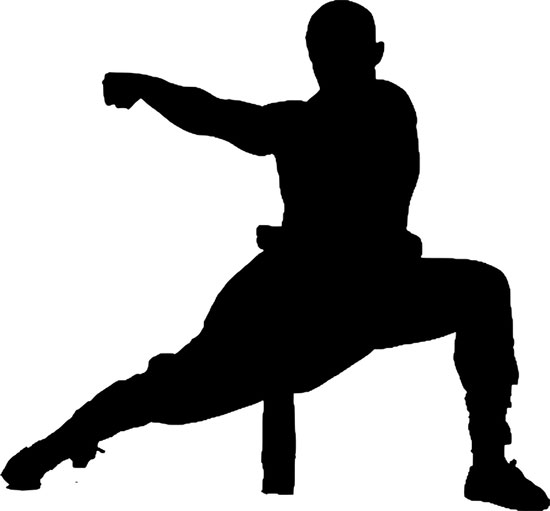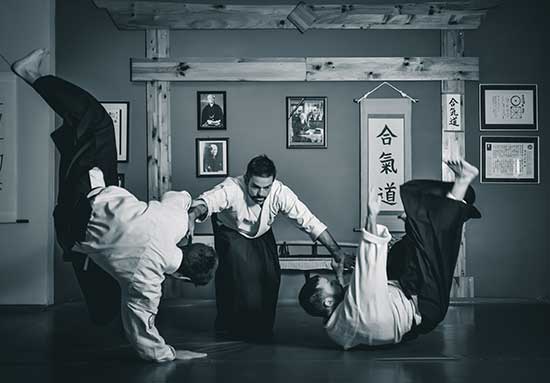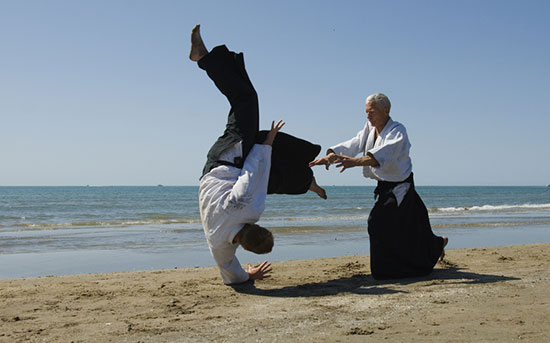Martial arts have been around for centuries, with each discipline having its own set of techniques and philosophies.
Two of the most popular martial arts are Aikido and Karate. While both share similarities, they also have distinct differences that set them apart.
We’ll take a closer look at the history, philosophy, techniques, training methods, and benefits of Aikido and Karate to help you decide which martial art is best suited for you.
Contents
History
Karate originated from Okinawa Island in Japan during the 17th century as a form of self-defense against bandits. It was later introduced to mainland Japan in 1921 by Gichin Funakoshi.
Aikido was created in Japan by Morihei Ueshiba in the early 1900s as a synthesis of various martial arts he had studied throughout his life.
Philosophy
The philosophy behind Aikido is centered on non-violent conflict resolution. The aim is not to defeat an opponent but to blend with their movements to control them without causing harm.
The goal in Karate is to overpower your opponent through strength and speed with devastating strikes such as punches or kicks. However, it also places great emphasis on discipline and respect for oneself and others.
Techniques
Karate focuses on striking techniques such as punches, kicks, elbows, and knees while blocking attacks using arms or legs. It often uses shorter stances with explosive movements to generate maximum power quickly.
Aikido incorporates throws that use an opponent’s momentum against them using joint locks or pins while redirecting their energy away from themselves. Practitioners will learn how to fall safely and execute smooth circular movements effortlessly.
Training Methods
To become proficient in Karate one must practice katas (a sequence of pre-arranged techniques) sparring (kumite) with a partner, and work on fitness and strength development.
Aikido training involves both solo practice and partnered techniques that simulate attacks. Students also learn how to control their minds, breath, and movements through the meditative practice of Suburi exercises (basics)
Benefits
Both martial arts offer numerous advantages such as:
- Improved physical fitness
- Increased self-confidence
- Discipline and self-control
- Stress-relief
- Self-defense skills
However, Aikido often appeals more to individuals who prefer non-violent conflict resolution while Karate appeals to those who seek direct confrontation with an opponent.
| Aspect | Aikido | Karate |
|---|---|---|
| Origin | Japan | Okinawa, Japan |
| Founder | Morihei Ueshiba (1883-1969) | Gichin Funakoshi (1868-1957) and others |
| Philosophy | Harmony and blending with the opponent’s energy | Self-improvement, discipline, and respect |
| Focus | Joint locks, throws, and redirection of energy | Strikes, punches, kicks, and knee strikes |
| Techniques | Circular movements, blending with opponent’s force | Linear and circular movements, strong and fast techniques |
| Self-defense | Primarily defensive, focused on neutralizing the attack | Both defensive and offensive, focused on counterattacking |
| Training | Emphasis on fluidity, blending, and non-resistance | Emphasis on strength, speed, and technique |
| Sparring | Less emphasis on kata, and more on partner practice (Randori) | Light to full contact, depending on the style |
| Forms (Kata) | Circular movements, blending with the opponent’s force | Strong emphasis on kata, practiced alone or with partners |
| Grading System | Kyu and Dan ranks, white to black belts | Kyu and Dan ranks, various colored belts to black belt |
| Mental Aspect | Spiritual development, meditation, and breathing exercises | Mental and physical discipline, focus, and concentration |
| Practical Application | More suited for self-defense and conflict resolution | More suited for self-defense and sport competitions |
Conclusion
In conclusion, Aikido vs Karate both have their unique philosophies, techniques, and training methods catering to different personalities.
That being said accurate assessment of which martial art is suitable for an individual requires some research into the discipline’s characteristics; perhaps even seeking consultation from instructors.
Whether you are drawn towards Karate’s hard-hitting approach or resonate more with Aikido’s peaceful philosophy encourage you it’s essential to focus your efforts on perfecting your technique while keeping safety in mind at all times.
